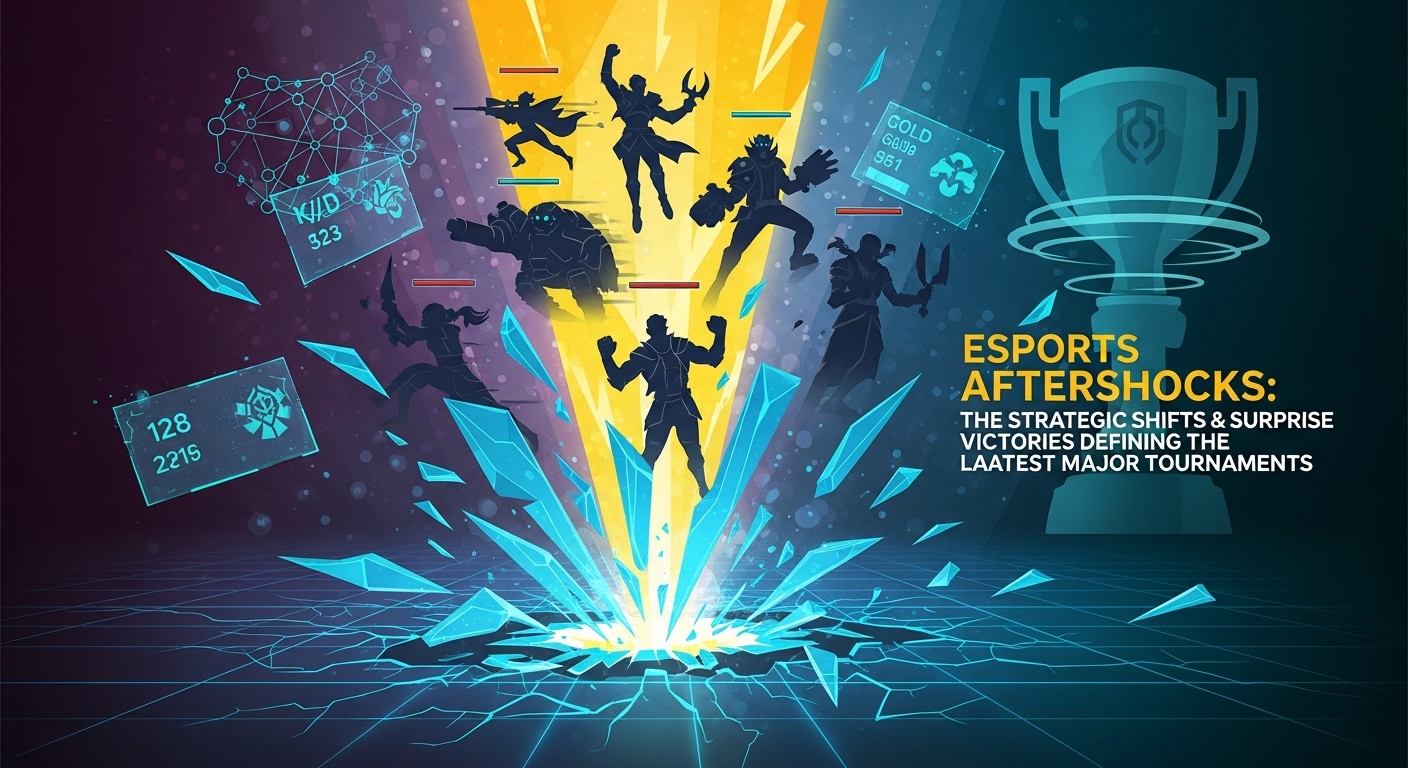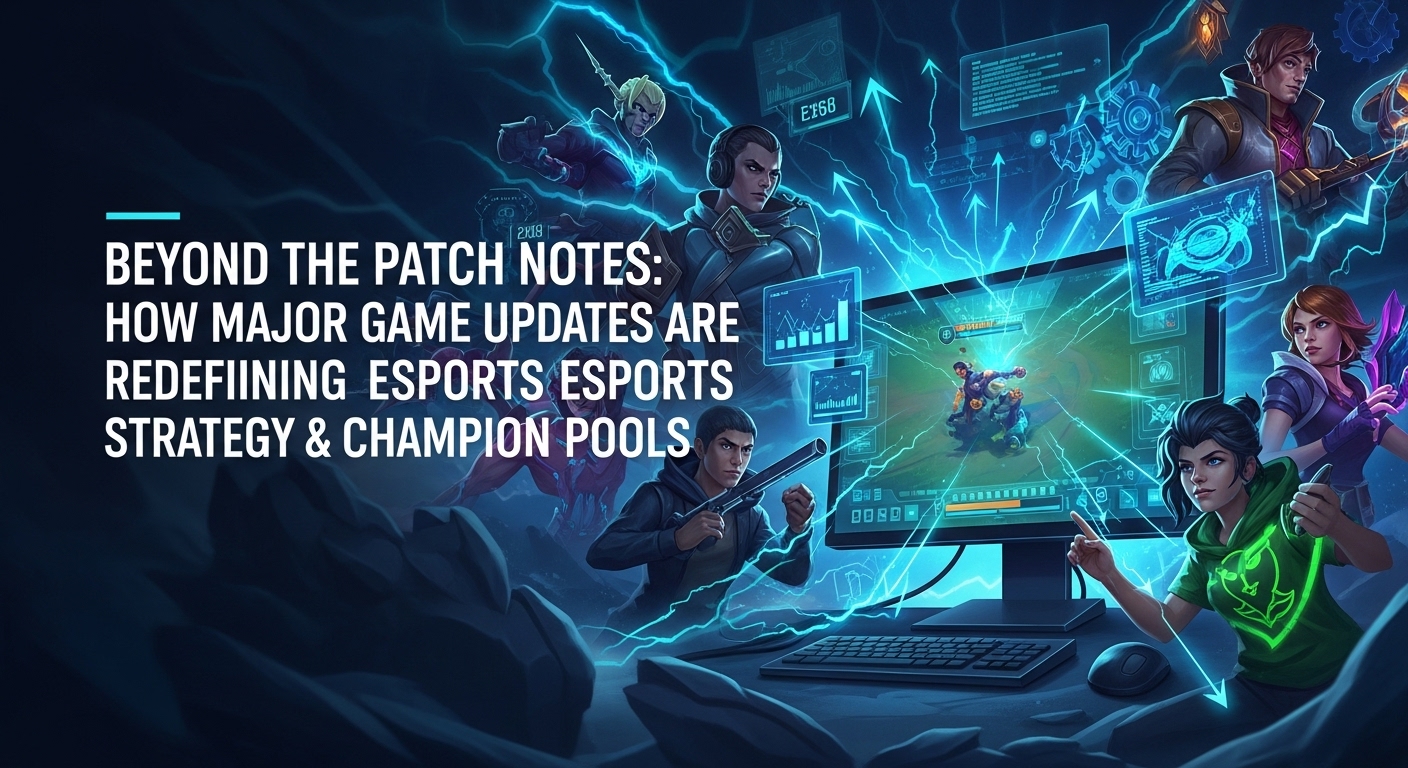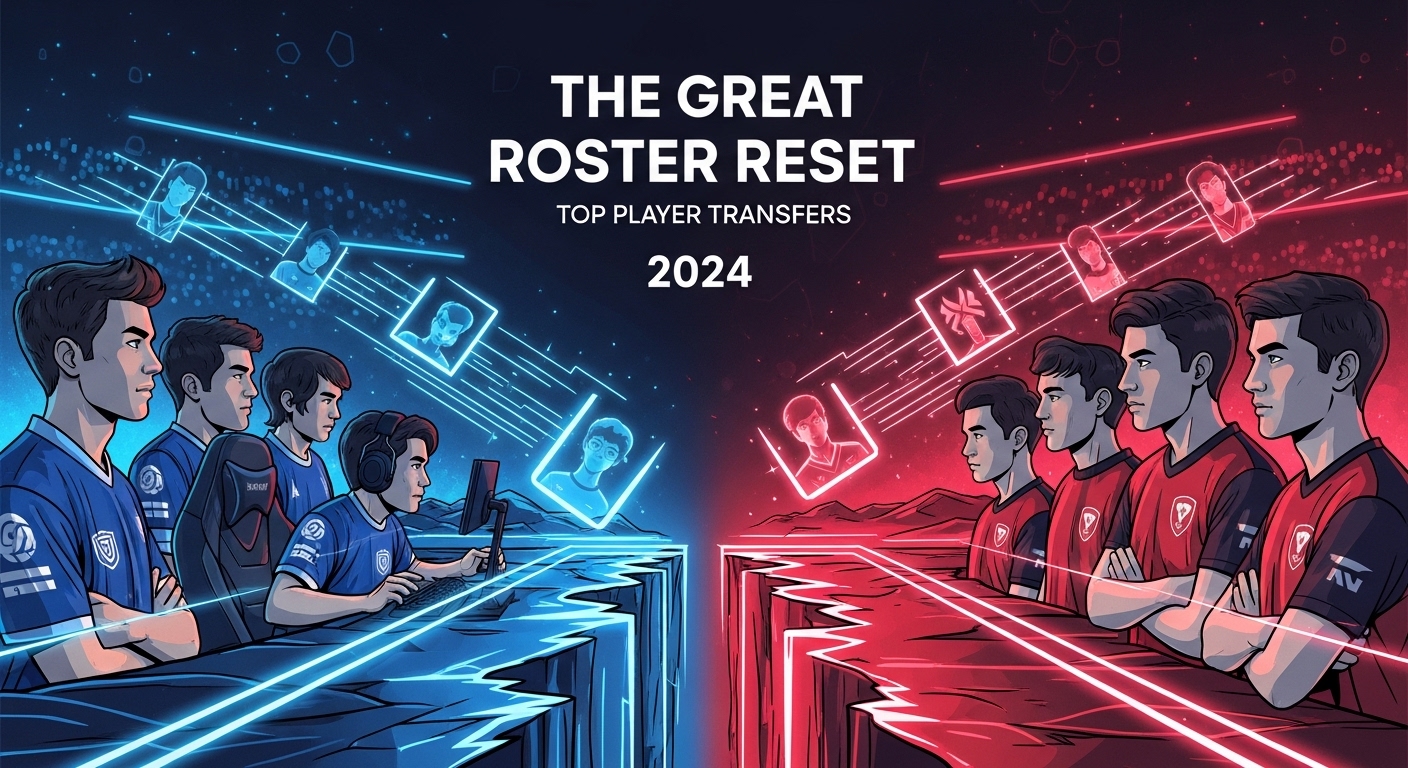The Dust Settles, The Landscape Changes
The roar of the crowd has faded, the confetti has been swept away, but the aftershocks from the latest season of major e-sports tournaments are still being felt across the entire competitive gaming world. We’re not just talking about new champions being crowned; we’re witnessing fundamental shifts in strategy, the dramatic rise of underdog heroes, and a clear signal that the old guards of professional gaming can no longer rest on their laurels. This isn’t just a recap; it’s an analysis of the tectonic movements redefining what it takes to win at the highest level. If you follow e-sports news, you know that victory is fleeting, but the lessons learned from these epic clashes are permanent.
The New Meta: How Strategic Innovation is Toppling Titans
For years, many top-tier teams relied on a proven formula: perfect a specific style, master the dominant meta, and execute it with flawless precision. That era is officially over. The most recent championships have shown that adaptability and strategic innovation are the new kings. Teams that were once considered invincible have been dismantled by opponents who refused to play by the established rules, opting instead to write their own.
Beyond the Comfort Picks: Roster Diversity in MOBA Arenas
In the world of MOBAs like League of Legends and Dota 2, the draft phase is often half the battle. We saw this play out in spectacular fashion during the recent international finals. One team, previously known for its conservative, late-game-focused drafts, found itself consistently outmaneuvered. Their opponents, a squad of hungry challengers, threw caution to the wind. They brought out niche, off-meta picks that completely disrupted the flow of the game. A support hero played in a core role, a forgotten mid-laner suddenly becoming a priority ban—these were the moves that broke the ankles of the competition. This strategic flexibility forced the favorites into uncomfortable matchups and decision-making paralysis. It proved that a deep, unpredictable champion pool is no longer a luxury; it’s a necessity for survival.
Aggression vs. Control: The FPS Tactical Revolution
The tactical shooter scene, particularly in games like Valorant and CS:GO, has always been a delicate dance between methodical, information-based control and explosive, raw aggression. Lately, the pendulum has swung violently. We witnessed teams that historically excelled at slow, default strategies get absolutely run over by hyper-aggressive, coordinated site executions that hit before defenders could even process the information. This wasn’t just mindless rushing; it was a calculated, high-risk, high-reward style built on perfect utility usage and unwavering confidence. Conversely, we also saw patient teams weather these aggressive storms, using superior rotations and retake protocols to turn the attackers’ momentum against them. The key takeaway is that there is no longer one ‘right’ way to play. The best teams are tactical chameleons, able to switch from a suffocating boa constrictor to a ferocious tiger at a moment’s notice.
Underdog Stories: The Surprise Victories Shaking Up the Scene
Nothing captures the magic of competitive sports—digital or otherwise—like a stunning upset. This season was filled with them, providing some of the most memorable moments and crucial e-sports news headlines of the year. These victories weren’t flukes; they were the result of tireless preparation, unshakable mental fortitude, and a burning desire to prove the world wrong.
From Qualifiers to Champions: A Cinderella Story
Every tournament has its dark horse, but rarely do they gallop all the way to the finish line. This year, one team did just that. Starting in the grueling open qualifiers, they were a roster of relative unknowns, dismissed by analysts and overlooked by fans. Yet, match by match, they built momentum. They weren’t the most mechanically gifted squad, but their teamwork was sublime. Their communication was flawless, their trade-fragging was impeccable, and their ability to stay composed under pressure was something veteran teams would envy. They toppled one giant after another, their confidence growing with each victory. In the grand finals, facing the tournament favorites, they didn’t flinch. They played their game, stuck to their strategies, and in a nail-biting final map, they etched their names into history. It’s a story that reminds us that in e-sports, passion and preparation can truly conquer all.
The Veteran’s Fall: When Experience Isn’t Enough
On the other side of the coin, we saw the heartbreaking fall of a legendary dynasty. A team that had dominated their respective scene for years, boasting a roster of household names, was unceremoniously knocked out early. Their downfall wasn’t due to a lack of skill, but seemingly a lack of adaptation. They continued to rely on the strategies that had brought them past success, failing to recognize that the game had evolved around them. Newer, hungrier teams had studied their every move, analyzed their patterns, and developed perfect counter-strategies. It was a stark and painful lesson that past glory guarantees nothing for the future. This kind of analysis is what makes following e-sports news so compelling; the throne is never safe.
The Talent Pipeline: How New Stars Are Forged in the Digital Arena
These strategic shifts and upsets are fueled by one thing: talent. The pipeline of new players entering the professional scene is more robust than ever, and these rookies are arriving more prepared and mechanically gifted than any generation before them. They aren’t just filling roster spots; they are defining the new meta.
The Rise of the Rookie Phenom
We saw several rookie players have breakout performances, but one, in particular, stood out. A young prodigy whose lightning-fast reflexes and seemingly limitless mechanical ceiling left audiences and opponents in awe. This player didn’t just play the game; they pushed its boundaries. Their audacious plays, incredible clutches, and fearless decision-making single-handedly won rounds and games for their team. They represent a new breed of player who grew up learning the game in a highly competitive online environment, honing their skills for years before ever stepping onto a professional stage. Their immediate impact is a testament to the depth of talent waiting for a chance to shine.
Adapting or Fading: The Pressure on Established Pros
The influx of new talent has put immense pressure on veteran players. To stay relevant, they can no longer rely on game sense and experience alone. They must now grind just as hard, if not harder, than the rookies to keep their mechanics sharp. We’re seeing established pros reinventing their playstyles, learning new agents or heroes, and dedicating more time to aim training and VOD review. The ones who embrace this challenge are extending their careers and proving their legendary status. Those who can’t or won’t adapt are quickly finding themselves outpaced and, eventually, replaced.
Your Source for Esports Aftershocks
The landscape of competitive gaming is in constant flux, and the aftershocks of these recent tournaments will continue to shape team rosters, strategies, and the very fabric of the e-sports world for months to come. The era of predictable outcomes is over, replaced by a thrilling new age of innovation, upsets, and emerging legends. Keeping up with the latest e-sports news has never been more exciting. What we’ve witnessed is a clear message to every pro team out there: evolve or be dissolved. What was your favorite moment from the recent championships? Who do you think is the next big star? Join the conversation below and let’s discuss the future of the games we love.


